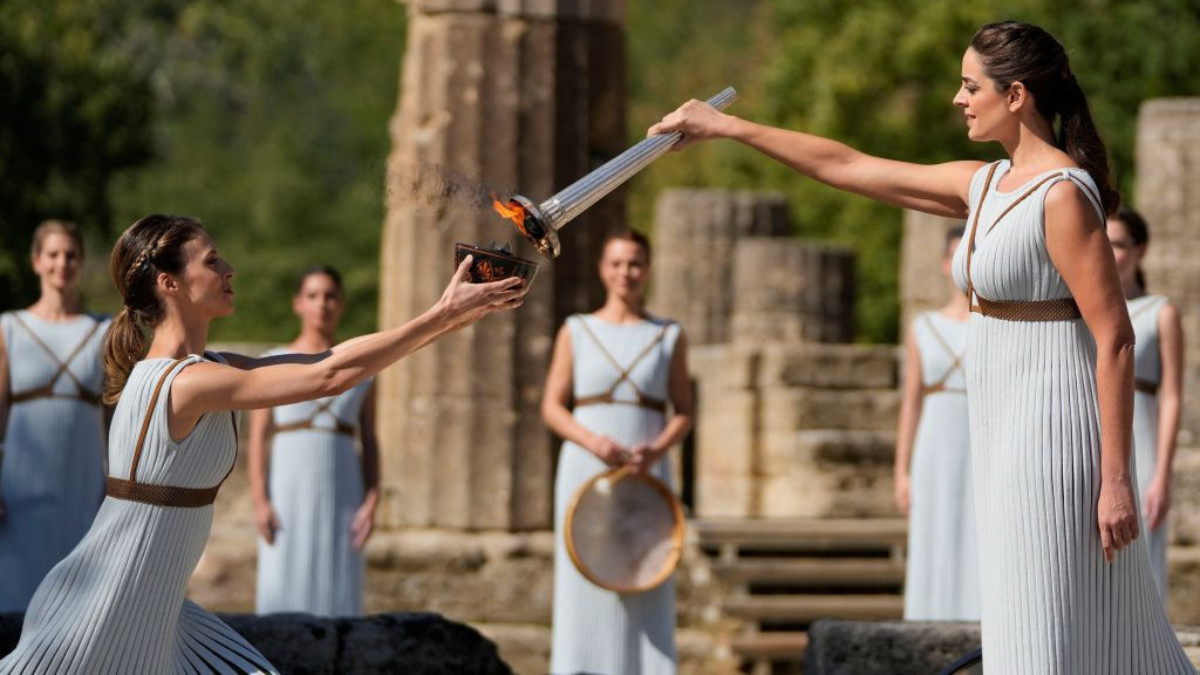The flame for the Paris 2024 Olympic Games has been lit in Olympia, the ancient birthplace of the first Olympics.
A relay to light the cauldron has now begun, a journey of more than 5,000 kilometres, which will begin the opening for the Summer Games in July.
Dignitaries and members of the public gathered at the stadium – where the earliest recorded version of the games was held in 776 BC, to witness the flame being lit.
Cloudy skies prevented the traditional lighting, when an actress dressed as an ancient Greek priestess uses the sun to ignite a silver torch.
Normally, the foremost of a group of priestesses in long, pleated dresses offers a prayer to the ancient Greek sun god, Apollo.
She then dips the fuel-filled torch into a parabolic mirror, which focuses the sun’s rays on it, and fire spurts forth.
But this time she didn’t even try, going straight for the backup, kept in a copy of an ancient Greek pot.
The first torchbearer was Greek rower Stefanos Douskos, a gold medalist in 2021 in Tokyo. He ran to a nearby monument that contains the heart of French Baron Pierre de Coubertin, the driving force behind the modern revival of the games.
The next runner was Laure Manaudou, a French swimmer who won three medals at Athens in 2004. She will hand over to senior European Union official Margaritis Schinas, a Greek.
The flame will travel from Athens’ port of Piraeus on the Belem, a French three-masted sailing ship built in 1896 – the year of the first modern games in Athens.
The pageantry at Olympia has been an essential part of every Olympics for nearly 90 years since the Games in Berlin.
It’s meant to provide an ineluctable link between the modern event and the ancient Greek original on which it was initially modelled.
Once it’s been carried by any means imaginable to the host city – it’s been beamed down by satellite, lugged up Mount Everest and towed underwater – the flame kindles a cauldron that burns in the host Olympic stadium until the end of the games. AP


